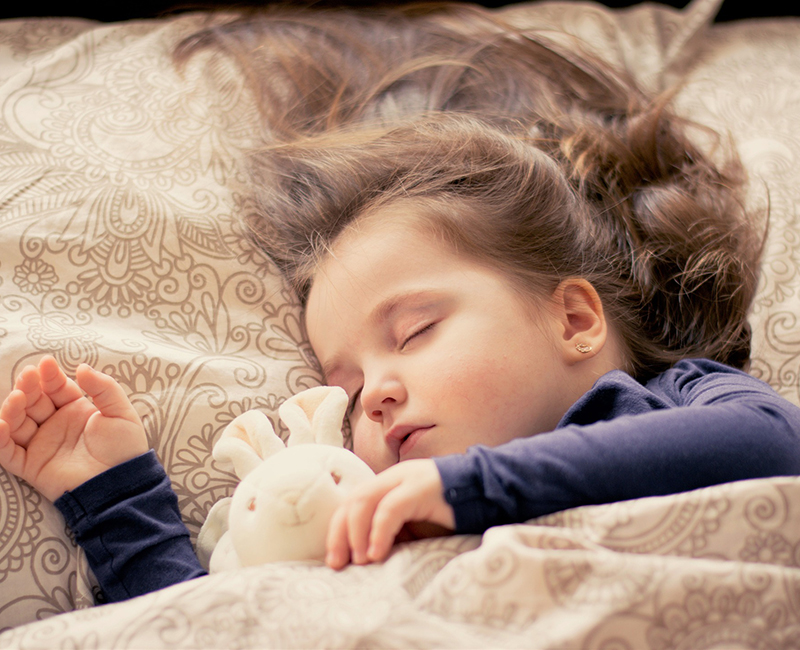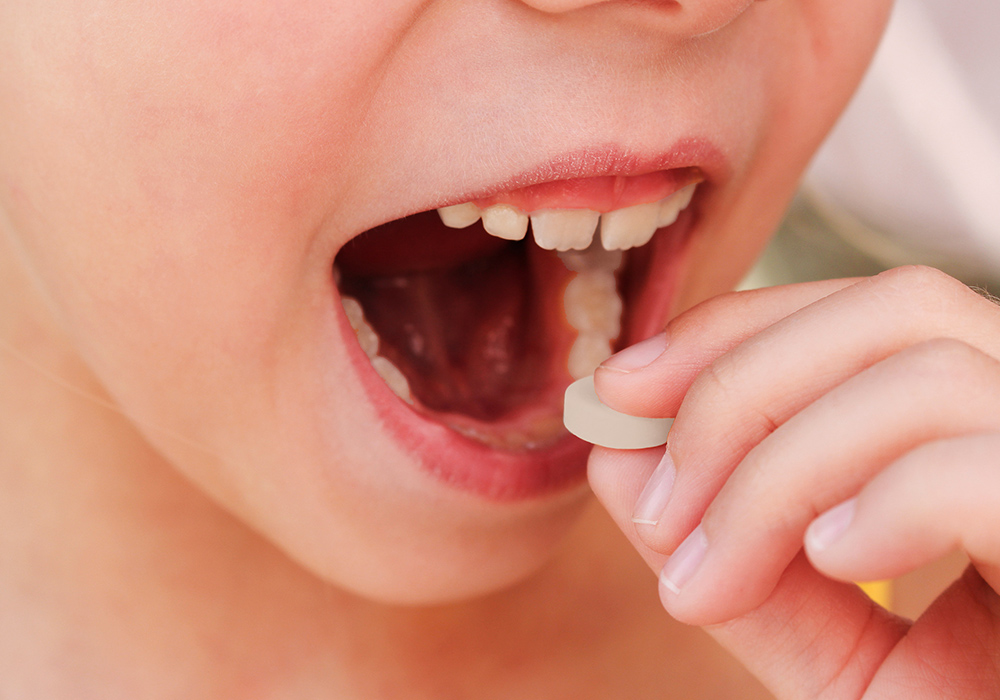The number one question that we get at Teddy MD is, “Is melatonin safe for kids?” This article addresses this question.
As many of you know, the media loves to sensationalize things almost as much as they love to speculate. This is especially true when they have the opportunity to play on one particular emotion — fear. And there is nothing scarier than the thought of hurting our own children.
So, why does the media do this? Why don’t they exercise the principles of fair journalism? Unfortunately, because they (usually) don’t get paid to be fair. They get paid and are rewarded for the number of eyeballs and clicks that their article generates. And that means the more sensational and attention-grabbing they can make it, the better.
Let’s return to our original question: Is melatonin safe for kids? When the idea for Tired Teddies was born in May of 2012, that was our #1 question. And after the initial Google search on the topic, we saw enough sensationalized articles to nearly can the whole idea and give up. After all, we didn’t create Tired Teddies to “get rich.” We created it, actually, to help families be happier and have better homes! So, if it could only be done at the risk of harming those we were trying to help then it wouldn’t have been worth it!
But looking at the news articles more closely, and we discovered a disturbing trend. It consisted of three key points:
(1) Every time the article would have positive things to say about melatonin, it would be quoting research.
(2) Every time it had negative things to say, it would be quoting the opinions of doctors.
(3) The articles repeatedly make mention of smaller dosages being safer for kids, but nothing for sale on the market was actually the correct dosage for kids.
This all made us curious, “What does the actual research say?”
That’s when we decided to go read all the research for ourselves. So we started reading. And kept reading. And kept reading. When we were out of research available to the public, called our family doctor, and got him to start reading studies that we didn’t have access to. Here’s what we discovered: Absolutely all the research on melatonin use in kids is positive. It has an 88% efficacy rating on average, a 100% safety rating, and no (that’s a big ZERO) reported cases of it actually being dangerous for normal kids, kids with ASD, or kids with ADHD [1]. One single study in England reported a single case of a child with epilepsy having a seizure while taking melatonin. But the same study (which looked only at kids with epilepsy and gave high dosages) reported that several other kids actually experienced less seizures while on a treatment of melatonin. That is the only negative event ever reported (aside from mild side effects), and it is doubtful whether there was an actual link between the melatonin and the seizure [2]. (Regardless, we do not recommend Tired Teddies to kids with epilepsy, just to be extra safe).
After reading over forty studies, our doctor read another thirty! That’s over seventy studies showing that melatonin is safe and effective. Yet the media loves to find doctors who will sell the story of fear, but these same doctors never cite any research. Why not? Because there isn’t any to back up the opinion that melatonin is dangerous. The reality, sad as it is, is that most of these doctors either haven’t read the research (not speaking of doctors generally, but rather those that remain scared of melatonin), or they are just ideologically opposed to the idea of using a supplement to help kids sleep at night.
As time has passed, more and more naysayers are having to concede: it’s safe and it works. However, more recently they are following this up with a caveat: don’t use melatonin every night long-term unless prescribed by a doctor, because if you do it could delay puberty and reduce natural melatonin production. Before I address these concerns let me be clear — most kids don’t need melatonin every single night. Good bedtime routines should always come first and are usually sufficient (keyword: usually). But for those that do need help sleeping every night, these two concerns can cause some real anxiety.
Let’s start with the fear that kids will stop producing their own melatonin. Melatonin is a naturally occurring hormone that is secreted by the pineal gland. The argument usually follows logic something like, “If your body already has melatonin from a supplement, it won’t produce more and the gland will shrink and become useless.” Once again, the research does not back this claim. It just doesn’t. In fact, the opposite often occurs. In about 15-20% of cases, kids with chronic sleep problems continue to sleep much better after they’ve stopped taking a melatonin supplement than before they started treatment. And even kids that took it for over 3.5 years did not become dependent on it [3].
Not only that, but new research is finding that kids with ADHD and ASD often do not produce melatonin at bedtime to begin with. So why are we worried about their body losing its naturally melatonin production when it was already not producing it when it should? (As a side note, this is part of what makes Tired Teddies beautifully effective — it gives these kids the exact amount that their bodies should be producing but aren’t. That’s 0.3 milligrams. Nothing more, nothing less).
So, what about the whole puberty thing? This claim baffled us at first, because we couldn’t see where the theory originated. But after doing some digging, we figured it out — turkeys. That’s right, turkeys. It all started when some scientists discovered that giving melatonin to turkeys affected a receptor indirectly related to sexual maturation [4]. They then postulated that since humans have the same receptor, melatonin supplementation could have the same effect in humans. But the study was never replicated, and the findings were never duplicated in animals more closely related to humans. In fact, two recent longitudinal studies done in Denmark and New Zealand (on real-life, human children) have found that daily (nightly) melatonin use in children for several years had no effect on puberty.
Granted, it would be nice if more research existed on the topic. In time, there will be. But for now, let’s think about this logically. Melatonin has been around since the 70’s, and more widely available since the 80’s. Thousands of people have now been giving their kids melatonin for a few decades (usually at 10 times what they should be taking), and we’ve had several generations grow well into adulthood. In all that time, has there ever been a single reported case of someone claiming that giving their kids melatonin delayed puberty? Not one. Why not? Because it doesn’t.
In conclusion, let us sum up by saying that Tired Teddies is not for everyone. Not all kids need it. But some do. For some, it’s great for occasional use when traveling or when their schedule gets out-of-whack. For others, it is an absolute essential part of a healthy, happy life. But for everyone, it is clearly safe.
1) Caldwell, Neil. “Http://Ljournal.ru/Wp-Content/Uploads/2016/08/d-2016-154.Pdf.” Wirral University Teaching Hospital, no. 4, Apr. 2016, doi:10.18411/d-2016-154.
2) Gupta, Madhur, et al. “Add-On Melatonin Improves Sleep Behavior in Children With Epilepsy: Randomized, Double-Blind, Placebo-Controlled Trial.” Philosophy of the Social Sciences, Journal of Child Neurology, 1 Feb. 2005, journals.sagepub.com/doi/abs/10.1177/08830738050200020501.
3) Hoebert, Micheal, et al. “Long-Term Follow-up of Melatonin Treatment in Children with ADHD and Chronic Sleep Onset Insomnia.” Journal of Pineal Research, June 2009, doi:10.3897/bdj.4.e7720.figure2f.
4) Siopes, T. D., and Christopher B. Moore. “Spontaneous Ovarian Adenocarcinoma in the Domestic Turkey Breeder Hen (Meleagris Gallopavo): Effects of Photoperiod and Melatonin.”Department of Poultry Science, Dec. 2003, doi:10.3897/bdj.4.e7720.figure2f.




